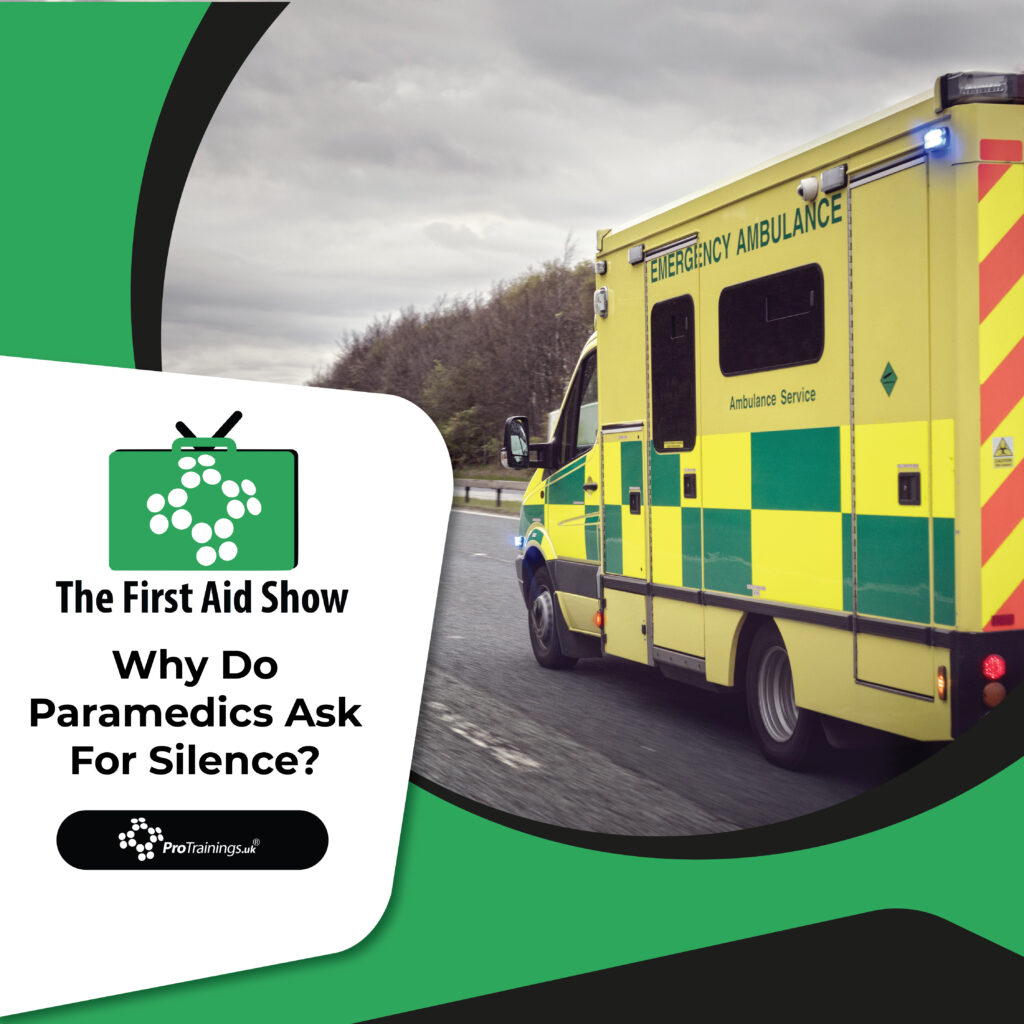Welcome to the First Aid Show: The Importance of Silence During Emergencies
In this episode, we explore why paramedics sometimes request silence at the scene of an emergency. This might seem puzzling to bystanders, but there are critical reasons for this request.
The Role of Silence in Emergency Medical Care
During complex medical interventions, paramedics and critical care teams often need to create a calm environment to effectively treat patients. Silence can be crucial in these moments, especially when administering specific treatments that can make patients extremely sensitive to noise.
Why Silence Matters
Reducing Stress and Preventing Flashbacks: Certain emergency procedures involve drugs that could cause severe stress or trigger flashbacks if administered in a noisy environment. Keeping the scene as quiet as possible helps in stabilizing the patient’s condition and prevents long-term psychological effects.
Case Study: The Impact of Noise on Emergency Care
A vivid example of why silence is crucial occurred during a youth football match. A young player suffered a head collision and subsequent seizure. The arriving critical care team needed to administer a general anaesthetic and other sensitive drugs. Despite the chaotic environment of ongoing games and crowd noises, the medical team had to ensure absolute quiet to prevent distressing auditory stimuli that could lead to disorienting and frightening flashbacks for the patient.
Post-recovery, the patient reported experiencing surreal flashbacks of being chased by dinosaurs, a side effect likely exacerbated by the surrounding noise during treatment. This instance underlines the significant impact environmental factors can have during medical interventions.
How to Assist Emergency Responders
If you find yourself at an emergency scene, follow these guidelines:
- Respect requests for quiet: Understand that silence may be medically necessary.
- Minimise unnecessary noise: Turn off loud music, halt nearby games, and calm noisy groups.
- Assist in crowd control: Help to maintain a calm perimeter around the patient.
Conclusion: Next time you witness a paramedic asking for silence at an emergency scene, remember it’s a critical step in providing the best care possible for the patient. Your cooperation can make a significant difference in the outcomes of those in need.


